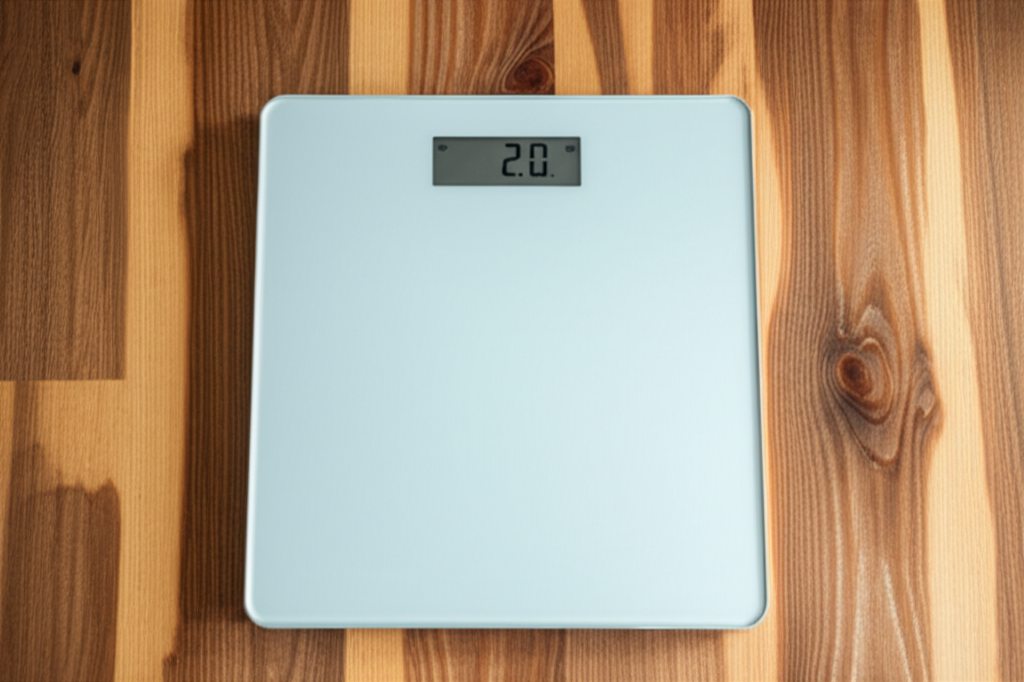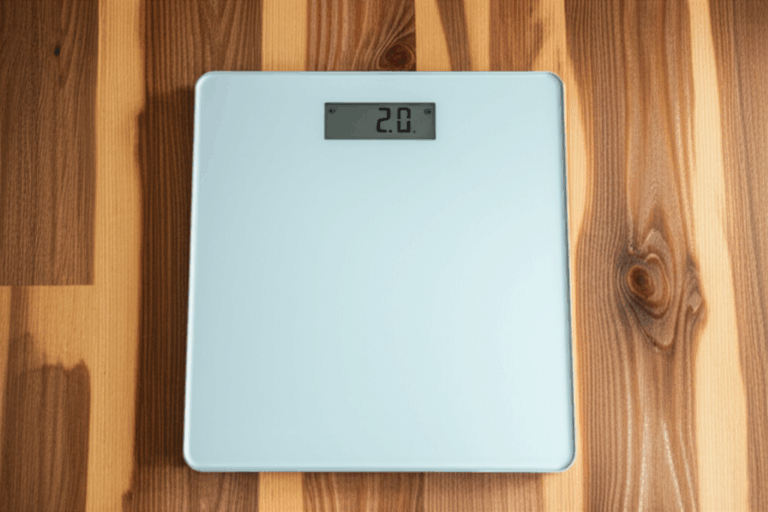For many, the journey to better health begins and ends with a number on a scale. We step onto it with trepidation, our moods often dictated by its fluctuating digits. However, a growing chorus of health and fitness experts is urging a fundamental shift in perspective: ditch the scale and focus on fitness for a more holistic, sustainable, and truly healthy life. This approach acknowledges that genuine well-being extends far beyond mere pounds and embraces a multitude of benefits that can’t be measured by a single number.

Why the Bathroom Scale Can Be Misleading
The conventional bathroom scale provides only one piece of information: your total body weight. This number, however, is a poor indicator of overall health and can be highly deceptive for several reasons:
Daily Fluctuations and Inaccurate Reflections
Your weight can fluctuate significantly day-to-day, even within hours, due to factors like hydration levels, food intake, and water retention. A particularly large, carb-heavy meal or increased salt intake can lead to temporary “weight gain” from water retention, which doesn’t reflect an increase in body fat. Obsessing over these daily swings can foster unhealthy tendencies and disconnect you from your body’s true signals.
Muscle Versus Fat: A Key Distinction
One of the most critical reasons to look beyond the scale is its inability to differentiate between muscle and fat. Muscle is denser and takes up less space than fat, meaning a person can lose fat, gain muscle, and see little to no change on the scale, or even an increase. For instance, a very fit athlete with considerable muscle mass might be classified as “overweight” by standard BMI calculations or the scale, despite being exceptionally healthy. This can lead to frustration and discouragement, masking genuine progress in body composition.
Psychological Impact of Scale Obsession
Relying heavily on the scale can have a detrimental psychological impact, linking self-worth to a number and potentially triggering disordered eating or exercise behaviors. The constant pressure to see a downward trend can make the fitness journey feel futile and demotivating when the numbers don’t cooperate.

The Broader Benefits of Prioritizing Fitness
Experts emphasize that improved health and longevity are better achieved by increasing physical activity and improving fitness rather than solely focusing on weight loss. The advantages of regular exercise extend well beyond shedding pounds:
Enhanced Cardiovascular Health and Disease Prevention
Regular physical activity strengthens the heart and lungs, improving blood flow and boosting “good” cholesterol (HDL) while decreasing unhealthy triglycerides. This significantly reduces the risk of heart disease, stroke, high blood pressure, and type 2 diabetes, even for individuals who remain overweight or obese.
Improved Mood and Mental Well-being
Exercise is a powerful mood booster. Physical activity stimulates brain chemicals that can leave you feeling happier, more relaxed, and less anxious. It reduces stress hormones like cortisol and adrenaline, while increasing endorphins, promoting feelings of well-being and improved sleep. Regular fitness can also enhance self-esteem, self-efficacy, and may help prevent and manage mental health disorders like depression and generalized anxiety.
Increased Energy Levels and Physical Functionality
Consistent exercise improves muscle strength and boosts endurance, allowing your cardiovascular system to work more efficiently. This translates to increased energy for daily tasks, making everyday activities like grocery shopping or climbing stairs feel easier. Improved fitness enhances your ability to perform functional movements with ease and reduces the risk of injury.
Stronger Bones, Muscles, and Better Sleep
Physical activity strengthens muscles and bones, promoting bone formation and maintenance, which is crucial for healthy aging. Furthermore, exercise acts as an external cue to your circadian clock, promoting more regular and restorative sleep patterns.
Boosted Immunity and Gut Health
Evidence suggests that light to moderate aerobic exercise can enhance the immune system’s function, potentially leading to fewer instances of illness. Exercise can also contribute to a healthy gut microbiome, increasing beneficial short-chain fatty acids that may prevent disease and reduce inflammation.

Shifting Your Focus: Practical Advice from Experts
To truly embrace a fitness-first approach, experts recommend several practical strategies:
Redefine Your Goals
Instead of aiming for a specific weight, set goals based on tangible fitness achievements. This could include exercising a certain number of times per week, increasing the duration or intensity of your workouts, or mastering new movements.
Prioritize Consistency Over Perfection
Real change comes from consistent effort, not instant results. Focus on building sustainable routines that you can stick with over time, rather than intense, short-lived efforts that lead to burnout.
Listen to Your Body
Pay attention to your body’s cues regarding hunger, fullness, and how different foods and activities make you feel. This helps build a stronger mind-body connection, rather than relying on an external number to guide your health decisions.

Alternative Metrics for Tracking Progress
When you ditch the scale, you open the door to a more comprehensive and accurate understanding of your health journey. Here are several alternative metrics recommended by experts:
Body Measurements and Composition
Tracking measurements of your waist, hips, thighs, chest, and biceps can provide valuable insights into changes in body composition, even if your weight remains stable. Technologies like body fat calipers, smart scales with bio-electrical impedance analysis (BIA), or even more advanced DEXA scans can help monitor body fat percentage and muscle mass. A decrease in inches or body fat percentage indicates progress towards a leaner, healthier physique.
Strength and Endurance Gains
Monitor your performance in workouts. Are you lifting heavier weights, performing more repetitions, or running longer distances? Improvements in strength and endurance are excellent indicators of increased fitness and overall physical capability.
Energy Levels and Mood
Pay attention to how you feel throughout the day. Do you have more energy, improved mood, reduced fatigue, and better focus? These are significant signs of improved fitness and overall health. Keeping a wellness journal can help track these subjective yet powerful changes.
How Clothes Fit
A highly tangible sign of progress is how your clothes feel and fit. As you build muscle and lose fat, you may notice your clothes becoming looser, even if the scale hasn’t budged.
Resting Heart Rate and Blood Pressure
A lower resting heart rate generally indicates a healthier, more efficient cardiovascular system. Regular exercise, particularly cardio, can help lower your resting heart rate. Monitoring blood pressure is also crucial for assessing cardiovascular health.
Flexibility and Mobility
Improvements in range of motion, ease of functional movements, and progress in activities like yoga or stretching routines are often overlooked but vital aspects of fitness.

Embracing a Holistic View of Health
Ultimately, genuine well-being is multifaceted, encompassing physical, mental, and emotional health. By letting go of the scale’s singular focus, you can cultivate a more positive relationship with your body and celebrate a wider array of health victories. Prioritizing fitness empowers you to become stronger, more energetic, happier, and more resilient, fostering a sustainable path to a longer, healthier life, regardless of the number on a scale.







